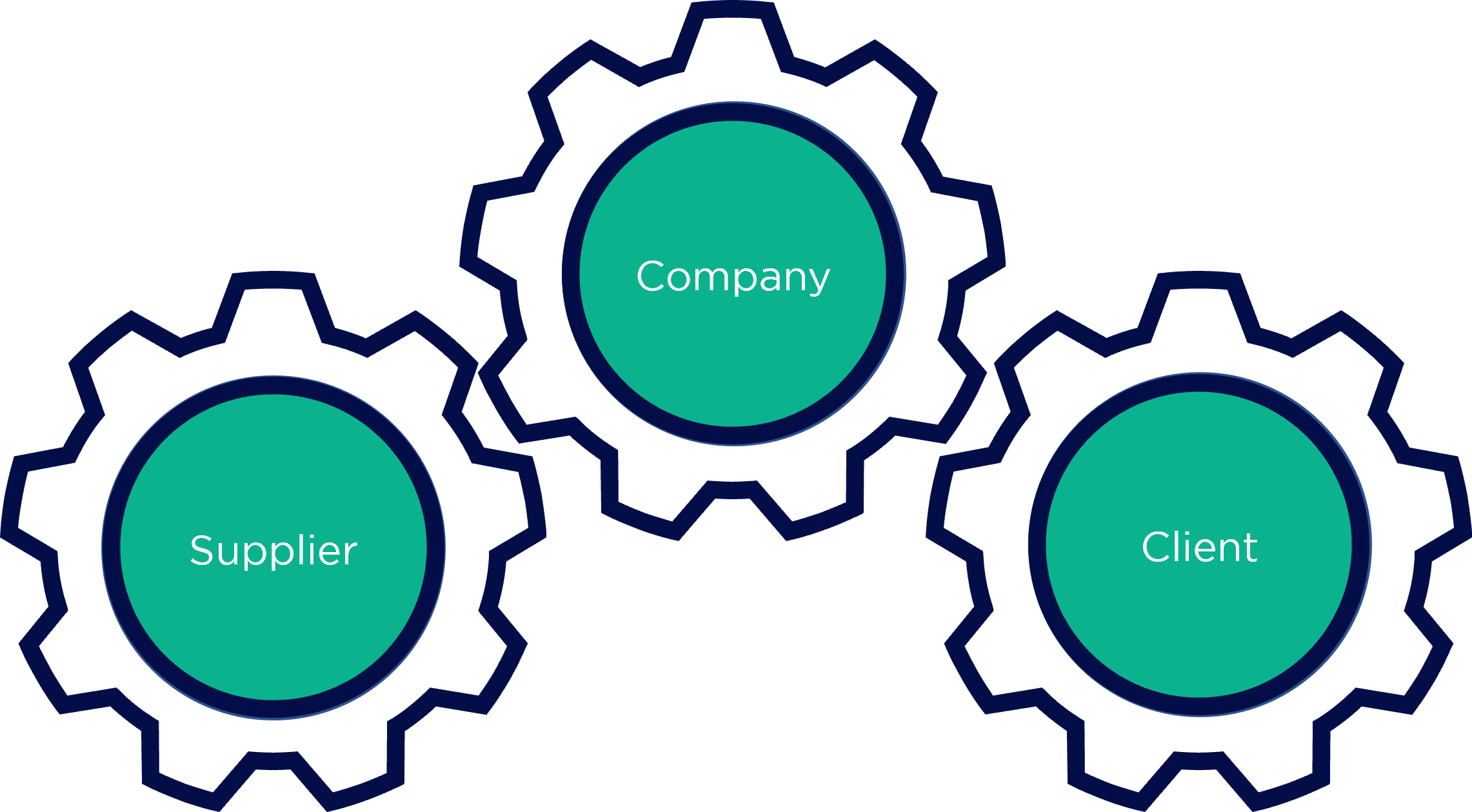
Active risk management in procurement
Many buyers know at least one of the following situations only too well:
- The business unit suddenly needs considerably more material than negotiated in the supplier contract or does not purchase the planned quantities.
- Operational management criticises procurement because seasonal or other changes in raw material prices have a negative impact on the product margin.
- The customer complains about a product defect. The supplier of the input material or good is unaware of any such faults so blame falls upon the procurement department.
And the list goes on...
The required flexibility in terms of quantity, scope, and market changes applies pressure to the procurement department. Failure to adequately manage procurement risk leads to unexpected costs and difficult conversations. As a result, procurement often finds itself lurching from issue to issue – a fire brigade turning its hose from one fire to the next.
"An uneven burden of risks in the supply chain leads to procurement operating as a fire brigade turning its hose from one fire to the next."
So what’s going wrong? It’s simple: a failure to adequately manage procurement risk. Many of the aforementioned problems are due to the uneven burden of the risk shared between suppliers, procurement, and customer. For instance, a decision on the price-point for a product will almost certainly take into account costs and margins, but often a risk premium is not included in the calculation. In summary, it is important for procurement to identify, avoid, or minimise these risks and to make existing risks transparent within the company.
Preventive identification of procurement risks
To identify the company’s risk position, a combined Pareto analysis of customer and related supplier contracts is required, with the aim of identifying those supplier-customer combinations that account for the majority of expenditure – and risk.
The contract terms must be examined, along with the historical and planned spend in terms of price and quantity and the external factors that affect the supplier or customer. Typical things to look out for in supplier risk assessment include:
- Minimum purchase quantities and other quantity commitments or barriers
- Contract or delivery windows and extensions
- Exclusivity agreements or other conditions that reduce competition
- Dependencies and agreements between supplier and customer
- Differences in pricing models between supplier and respective customer
- Fluctuations in demand and forecast quality
- Consideration of different scenarios, e.g. cost increase, cost decrease, damage etc.
- Liability regulations
- Procedure and accountability in case of damage
Identifying measures for the reduction of procurement risk

Cooperation and shared supply chain risk
For each problematic risk position, the objective is to reduce the company’s exposure as much as is practically possible. Measures to enact such changes should be implemented at the next opportunity, depending on the extent of the risk and resource capacities. Such measures can include process or technology changes (e.g. improved forecasting analytics) but more often than not involve renegotiation of contractual terms with suppliers and customers. Such negotiation measures are developed and implemented in an annual plan coordinated between procurement and sales. Negotiation between sales and the customer should take place first, due to the typically lower negotiating power to make changes in the framework conditions agreed with the customer. Any risk minimisation objectives not achieved with the customer can then be vigorously enforced on the supplier side or, as a last step, achieved internally through appropriate risk management (e.g. diversification, expansion of the supplier base, or competition-enhancing measures to improve bargaining power and ability to enforce risk minimising changes).
Negotiating and implementing procurement risk management changes
Successful negotiations are always based on a strong negotiating position and good preparation. As with any negotiation, the "ASK" and "BID" thresholds must be derived in advance and backed up with solid jusitfication and reactions to the anticipated counter-justifications. In the context of a risk minimisation negotiation, special attention should be paid to improving the risk position. It is also possible – and advisable – to further narrow the risk gaps in subsequent negotiations.
After successful implementation, the contracts should be monitored in a contract management system and the risk position must be regularly checked.
Results and added value
The results of effective risk management in procurement are difficult to measure given that, in the extreme, success leads to the avoidance of issues and perpetual business-as-usual. However, the difference in outcomes when good risk management in procurement is or isn’t in place can be enormous. Consider the costs that can be avoided from bottlenecks, customer lawsuits, or claims for damages that cannot be passed on. And that’s not to mention the chronically high costs incurred through poor risk positions, as procurement once again find themselves reacting to close demand gaps, rather than negotiating with suppliers from a strong, consolidated position achieved through evenly distributed risk.
OCM offers comprehensive support in the design and implementation of your risk management in procurement. We support you in the identification of procurement risk as well as in customer and supplier negotiations – also in combination with our comprehensive service offering in procurement & SCM. If you would like to receive information on how to proceed or have questions about risk management approaches, please do not hesitate to contact us. We would be happy to present our approach and modules in this regard or discuss specific issues and possible solutions based on your challenges.

Procurement Consulting Modules
Procurement Opportunity Assessment
- Benchmarking & Identification of Opportunities
- Tangible Action Plan for Implementation
External Cost Transformation
- Reduce costs & stop maverick buying
- Procurement Optimisation & Zero-Based Budgeting
Procurement Process Optimisation
- Procurement processes optimisation: fast, cost-efficient, digital
- Trained and invested employees
- Improving compliance
Strategic Sourcing
- Procurement Strategy & Cost Optimisation
- Increase quality & prevent maverick buying
Procurement Strategy Design
- Sustainable max. value contribution through optimal procurement strategy
- Reduce costs, optimise procurement processes
BI Cost Reporting
- Consolidated data sources
- Meaningful live analyses
- Fact-based decision making
Procurement Operating Model
- Maximising the value-add of the procurement organisation
- Optimise, measure, & control procurement processes
Training: Strategic Sourcing & Negotiation
- Buyers trained as specialists
- Putting theory into practice and implementing with support
Interim Procurement Manager
- Rapid response: candidates within 48h
- Matching of requirements and assessment of suitability using procurement experts
- From operational buyer to CPO
Should Cost Analysis
- Should Costing als Methode der Einkaufsoptimierung
- Der Weg zu Should Cost Analyse & Should Cost Modell
Digital Procurement
- Competitive advantages in speed, scope, & significance of information
- Efficiency through automation, data integration, & process simplification
Workforce Management
- Procure-to-pay cost reduction
- Fraud prevention
Supplier Management
- Efficient Cooperation
- Performance-based Supplier Management
Insurance Optimisation
- Cost Optimization
- Bespoke Optimal Insurance Cover